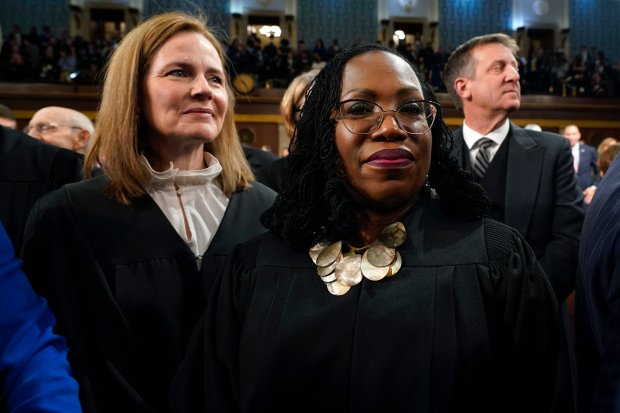Black history can’t be confined to just one calendar month. It’s an integral part of our national identity that deserves far more than just an annual commemoration. But every year, marking February as Black History Month feels more and more essential. In a country where extremist forces and Republican politicians are fighting to erase our history, celebrating Blackness has become a vital act of patriotism.
Some time ago, I gave a speech at an area high school. A young woman raised her hand and asked, “Ms. Braun, were you around in slavery times?” At first, I was surprised — but then it dawned on me that she would have no way of knowing or understanding the march of history or the relationship of one generation to another.
When Carter G. Woodson — the father of Black History Month — first proposed a Negro History Week in 1926, this country was still in the grip of Jim Crow-enforced segregation. It was our own version of apartheid. The NAACP flew a flag outside its window that said, “A man was lynched today.”
Just like that young woman, most of 1926 America was oblivious to how the people of its former slave class were being treated. And so, as the founder of the Association for the Study of African American Life and History, Woodson decided to make education the core of his advocacy for his people. That is the genesis of Black History Month.
As we spend this month reflecting on Black America’s past — our rich history, our complex roots and the legacy we’ve built — we’re also looking ahead to the future. We’re celebrating Black advocacy and Black leadership because Black History Month isn’t just about celebrating history; it’s about making it.
As a Black woman, I have had the eyes of history follow me every step of my career. When I served in the Illinois House of Representatives, I became the first Black assistant majority leader in state history. I later became the first Black female United States senator and the first Black Democrat in the Senate. Even in spaces designed to exclude Black women, I succeeded by leading with my values, building coalitions and never compromising on what was most important to me: delivering for my constituents and keeping my campaign promises. Education was, and is, especially important.
Black leaders and Black voters continue to play a critical role in making American history. In 2020, Black voters sent the Joe Biden-Kamala Harris ticket to the White House, electing Harris as the first Black vice president and the first woman to ever hold the office. That historic milestone was not the end of the work but the beginning.
Since taking office, Harris has continued to serve as a critical partner for President Biden and a key leader in the administration’s work to invest in Black communities. In just three years, the Biden-Harris administration has kept its promise to deliver historic results for Black America. It has invested a record $7 billion in historically Black colleges and universities, fought to lower student loan debt for Black students, overseen record growth in Black-owned small businesses and appointed a historic number of Black judges to the federal bench, including the first Black female Supreme Court justice, Ketanji Brown Jackson.
This president, this administration and this party know that Black history is not a relic of the past but a guiding principle for the future.
As a country, we’ve made so much progress, but our fight is far from over. Biden outlined the stakes ahead of the 2020 election, and this year, we are once again facing an “existential threat to our democracy.”
Woodson’s legacy of Black History Month reminds the American people what it means to be a free citizen in a democracy. America is run by the people, not by kings or dictators, and all of us as citizens have a role to play in making our democracy work. We must continue to share the whole truth of our struggle for freedom and an equal right to participate in governance, so that we can further Woodson’s legacy and underscore the vital importance of keeping our democracy alive.
That’s what Democrats will continue to do. We will continue to educate, mobilize and act to bring this country closer to its ideals. And this summer, Democrats will gather in my home state of Illinois for the Democratic National Convention, where we will nominate the historic Biden-Harris ticket for a second time.
There is so much at stake in this year’s presidential election, and come November, Democrats across the country, led by Black women, will once again make history when we send Biden and Harris back to the White House to continue the vital work of delivering for all Americans.
Carol Moseley Braun is a former Illinois representative and was the first Black female U.S. senator.



